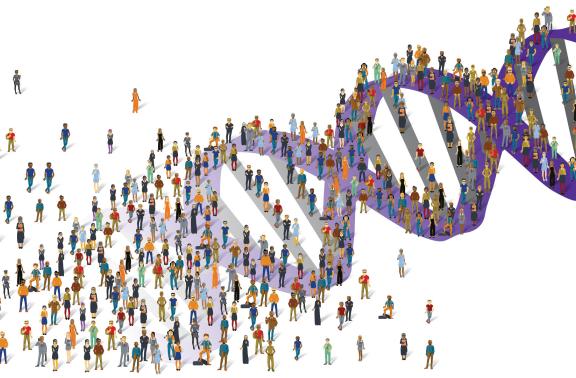
The Genetic Discrimination Observatory: A Key Global Resource in Addressing Genetic Discrimination
UNESCO’s 1997 Universal Declaration on the Human Genome and Human Rights sets up a bold vision, “No one shall be subjected to discrimination based on genetic characteristics that is intended to infringe or has the effect of infringing human rights, fundamental freedoms and human dignity.”
Genetic discrimination can occur when someone is treated differently or negatively because of their genetic information. Patients, scientists, and ELSI scholars have long been concerned about the risks for genetic discrimination, especially as our knowledge of the genetic underpinnings of diseases and traits advances. For example, there are concerns that third parties, beyond the healthcare and research setting, such as employers or insurance companies, may deny someone employment or charge someone higher premiums based on their genetic status.
Different countries have taken a variety of approaches to address genetic discrimination. In the United States, for example, the Genetic Information Nondiscrimination Act (GINA) prohibits covered employers and health insurers from discriminating on the basis of genetic information, broadly defined. Regulation of the use of genetic information by other entities, such as life, long-term care, and disability insurers, is left to the state level in the US. To take another example, Canada recently adopted the Genetic Non-Discrimination Act (GNDA), which makes it a crime to consider a genetic test result in the provision of goods and services, including insurance. Overall, countries have a wide variety of levels of protection, from judicial decisions that offer some protection against genetic discrimination to administrative rules or legislation-specific solutions to no specific laws or policies to address potential discrimination.
The Genetic Discrimination Observatory (GDO) is an international network of researchers and stakeholders with a collective interest in investigating issues of genetic discrimination and preventing such discrimination from occurring. Established in 2020, the GDO both creates publicly available model policies, resources, and tools on genetic discrimination and enables researchers to discuss ways to collaborate on the development of research and policy. It is currently comprised of team members from 26 different jurisdictions worldwide. The GDO has several ongoing research projects, in addition to its ongoing maps illustrating trends in genetic discrimination and the Share Your Story portal allowing the public to securely describe their experience of discrimination. For example, the GDO is currently in the third round of a global Delphi study aimed at identifying essential features of policies regulating genetic discrimination.
Contributing to the prevention of genetic discrimination across the globe is essential in order to meet important human rights such as the rights to dignity, equality and privacy. It is also an important means to increase people’s trust in genomic research facilitating in the process the attainment of the right to health and that of benefiting from scientific advances and, the right of everyone to enjoy the benefits of scientific progress and its application. To facilitate the development and international outreach of tools, policies and resources, the GDO currently collaborates with the GA4GH, an international organization of over 600 institutional members, dedicated to facilitating the sharing of genomic and health data. The GDO is an invaluable resource and opportunity for collaboration for those interested in researching and preventing genetic discrimination internationally.


